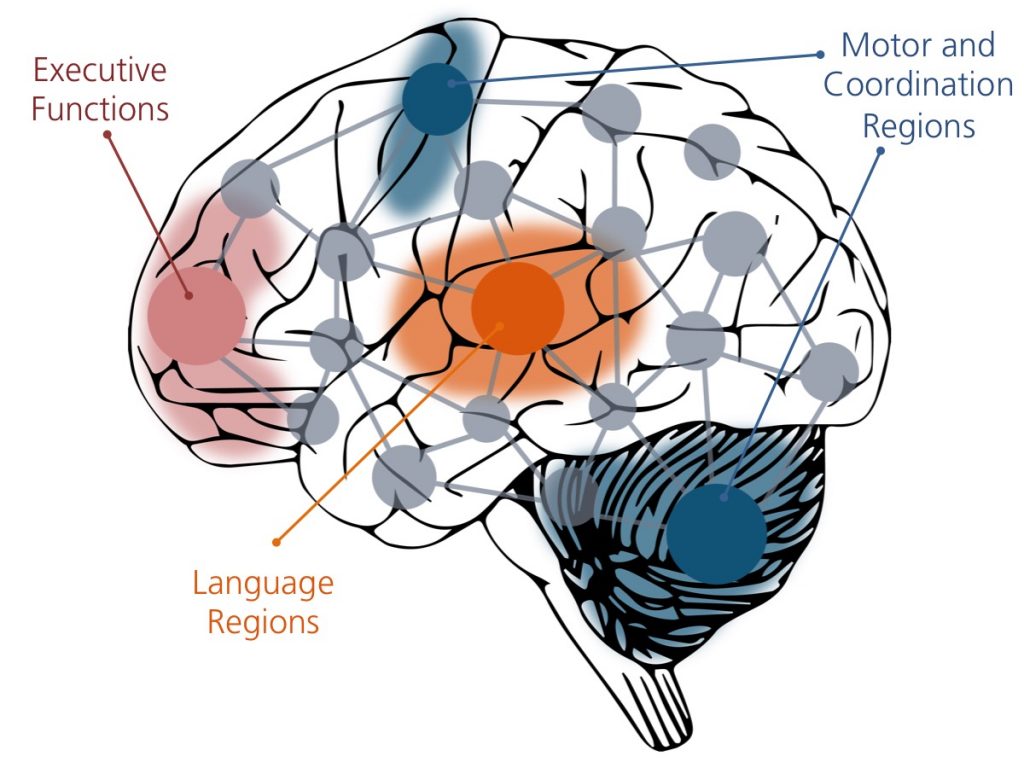
Why does early music training help babies process speech sounds? Researchers are conducting more new studies now to answer this question. Scientists are especially interested in looking at neural networks in the brain.
Many of the neural networks that are active when we play music are also used for language and other activities. The overlap between these networks means that musical training also likely strengthens neural networks used for language.
Let’s look at a few of the neural networks that are active when we play music. Playing music requires repetitive practice. To get the music right, you have to practice over and over and over. Musical training strengthens the neural networks for motor movement and coordination. You also have to concentrate for long periods of time. Musical training strengthens executive function skills required for paying attention to the music. We will talk more about executive function skills on the next few pages. The focused attention required to play music may also lead to emotional responses to the music. Having an emotional response to music may help us feel connected to our culture. It could also help us process our emotions, from joy to sadness.
-
- Beat
- the regular pulse of music
- Electroencephalography (EEG)
- a non-invasive method used to measure electrical activity in the brain
- Executive function
- a set of mental abilities that help us focus attention, remember information, and switch between tasks
- Magnetoencephalography (MEG)
- a non-invasive brain imaging technique used to determine which regions of the brain are active
- Meter
- a grouping of beats with specific patterns
- Neuroplasticity
- the ability to change how neurons in our brain are connected to each other
- Pitch
- the measure of how high or low we perceive sounds to be
- Pro-social behavior
- actions that are intended to help others
- Synchronized movement
- movements that occur in sync with musical beats and, or with other people
- Timbre
- the quality of a musical sound or voice that allows us to tell the differences between instruments or voices